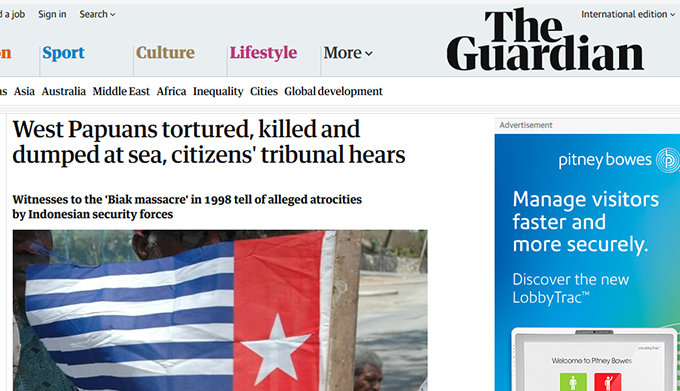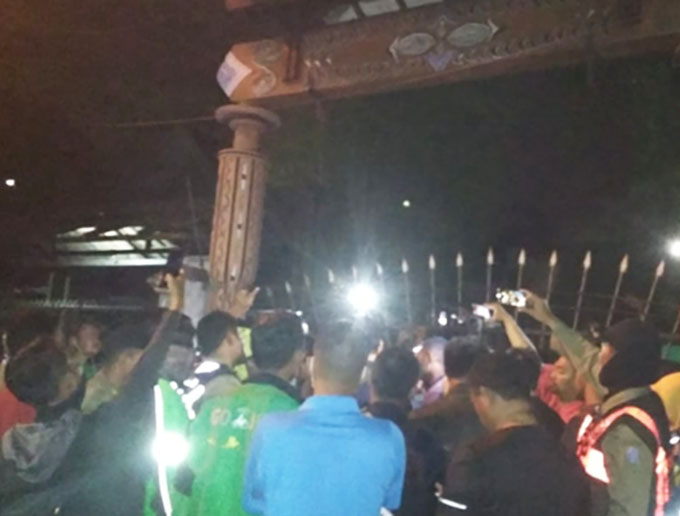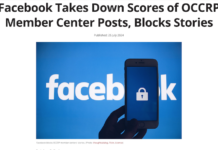A video of a demonstration marking the bloody Biak massacre of 6 July 1998 staged last year. Video: BBB Times
By Michelle Winowatan
Dozens of Indonesian military and police personnel raided a student dormitory in Surabaya on July 6 to stop the screening of a documentary about security force atrocities in Papua.
It is the latest example of the government’s determination not to deal with past abuses in the country’s easternmost province.
Security forces carried out the raid following social media postings about the planned screening of the documentary Bloody Biak (Biak Berdarah).
READ MORE: Police claim raid on Papuan students to block ‘Bloody Biak’ film screening
The film documents Indonesian security forces opening fire on a peaceful pro-Papuan independence flag-raising ceremony in the town of Biak in July 1998, killing dozens.

Security forces said the dorm raid was necessary to prevent unspecified “hidden activities” by Papuan students.
The raid is emblematic of both the Indonesian government’s failure to deliver on promises of accountability for past human rights abuses in Papua and its willingness to take heavy-handed measures to stifle public discussion about those violations.
The government of President Joko “Jokowi” Widodo has not fulfilled a commitment made in 2016 to seek resolution of longstanding human rights abuses, including the Biak massacre and the military crackdown on Papuans in Wasior in 2001 and Wamena in 2003 that killed dozens and displaced thousands.
Killing with impunity
Meanwhile, police and other security forces that kill Papuans do so with impunity.
Media coverage of rights abuses in Papua are hobbled by the Indonesian government’s decades-old access restrictions to the region, despite Jokowi’s 2015 pledge to lift them.
Domestic journalists are vulnerable to intimidation and harassment from officials, local mobs, and security forces.
The government is also hostile to foreign human rights observers seeking access to Papua.
Last month, the United Nations High Commissioner for Human Rights, Zeid Ra’ad Al Hussein, said he was “concerned that despite positive engagement by the authorities in many respects, the government’s invitation to my Office to visit Papua – which was made during my visit in February – has still not been honoured”.
The raid in Surabaya signals the government’s determination to maintain its chokehold on public discussion of human rights violations across Indonesia.
This suggests that the government’s objective is to maintain Papua as a ”forbidden island” rather than provide transparency and accountability for human rights abuses there.
Michelle Winowatan is a Human Rights Watch intern. The Pacific Media Centre’s Pacific Media Watch freedom project monitors Asia-Pacific rights issues.








































